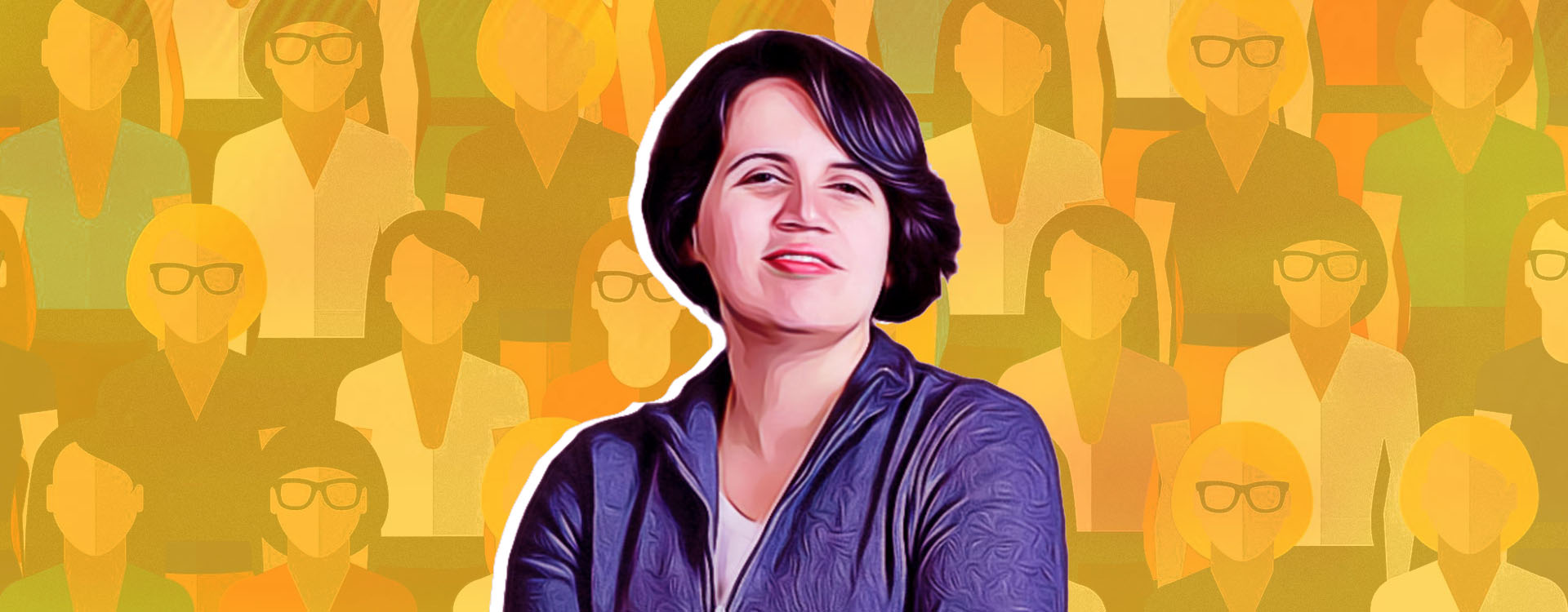“Women in entrepreneurship is a risk and waste of time,” a bitter mentality that is yet thriving in India’s patriarchal society for years and has been ingrained in the minds of elderly women as well. The existing age-old mentality became even more evident in the episode of the web-series ‘Made In Heaven’ when the daughter- in- law Tara Khanna who wants to start her entrepreneurial journey in being a wedding planner is ridiculed by her mother-in-law saying it is a waste of time and money.However, some women are born to challenge the monotony and carve out a niche for themselves, here we present Upasana Taku, Co-founder of one of India’s leading fintech platforms MobiKwik, whose indomitable spirit is an inspiration to many aspiring women entrepreneurs of India.
The Beginning
Upasana Taku, an exceptionally bright student since childhood, received her engineering education in Industrial engineering from the National Institute of Technology, Jalandhar. She further pursued a Master’s in Management Science and Engineering from Stanford University, United States. Being bright in academics, she bagged a job in HSBC, San Diego where she juggled many job roles ranging from marketing and outreach to prediction and market research. After her stint with HSBC, she joined PayPal, to understand online payment systems, risk direction, fraud management, user experience, and design.
While working with PayPal, she was mesmerised with the e-commerce ecosystem that how an individual without particularly visiting any store could purchase furniture, jewellery, clothes at his/her convenient time.
‘‘
While working with PayPal, she was mesmerised with the e-commerce ecosystem that how an individual without particularly visiting any store could purchase furniture, jewellery, clothes at his/her convenient time.
Returning to India and Mobikwik was born
After working with PayPal for a long time, she realized that there were no more challenges left in her work. She had worked on some high-budget projects but yet the satisfaction was absent. In 2008, she came back to India with a motive to contribute something to the ecosystem.
India, during 2008-09, was just at the beginning of embracing smartphones where telecom companies were busy expanding the user base by slashing internet plans. At that time, something like online payments or paying the regular electricity bill or gas bills within the comfort of a click was not there.
Wasting no more time, Upasana was back by early 2009, where she met with numerous people to understand various lucrative sectors in India and existing gaps. She learned that in India the idea of cashless payments was alien. She soon sensed this as an opportunity and decided to make people’s lives easier by creating a cashless payment system by leveraging technology.
Later, through a mutual friend, Upasana met Bipin, her husband and Co-founder of Mobikwik, and learned that he was interested in beginning a startup in the fintech space. They both soon plunged into the startup space in August 2009 and Mobikwik was founded. After six months, she started gaining confidence and soon the idea of Mobikwik started receiving attention. It was then when she realized that Indians have an appetite for technology in making their lives possibly easier. Upasana initially began with her job role in Mobikwik with managing finances that raised eyebrows of auditors, investors, and bankers since they wanted to deal with a male about money matters, which surprised her.
The Product Mobikwik Then and Now
Initially, Mobikwik began as a simple recharge platform that gradually transitioned into the mobile wallet of every Indian. It was the first mobile wallet of India. Now, Indians, within a click, can easily recharge their mobile with even as small as a ticket size of Rs 10 from any location. Today, Mobikwik has emerged to be India’s leading full-stack fintech platform operating in consumer payments, payment gateway, financial services and products. Since 2018, it has disbursed 19 lakh loans via its digital credit line, which disburses money instantly to the user’s wallet. To date, it has raised funding worth $100M in funding from marquee investors and is beginning to proceed for a public listing by 2022. With the acquisition of Clearfunds, it is eyeing to enter the mutual fund space.
For the aspiring women entrepreneurs
From Upasana’s phenomenal journey from being an employee of PayPal to becoming a Co-founder of India’s leading fintech platform, we learn that if women decide that we can surely make a difference or a problem could be solved in a certain manner that can be done by none other than myself, then one should never back down. There might be some hindrances from the family but plunging into entrepreneurship does not certainly mean that the love or responsibilities for the family are compromised. Hence, as rightly said by Upasana, ‘Kick up a storm or die trying’.





Good work S!